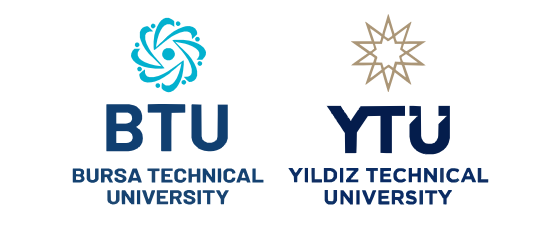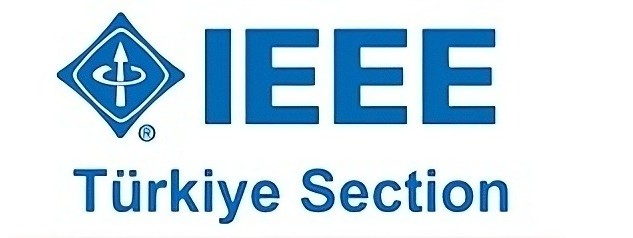


A Tale of Three Models: Generative Adversarial Models, Diffusion Models, and Large Language Models
Resume:
Aykut Erdem received his B.Sc., M.Sc., and Ph.D. degrees in Computer Engineering from Middle East Technical University in 2001, 2003, and 2008, respectively. During his doctoral studies, he was a visiting researcher at Virginia Tech in the summer of 2004 and at the Massachusetts Institute of Technology (MIT) in the fall of 2007. Between 2008 and 2010, he worked as a postdoctoral researcher at Ca’Foscari University of Venice within the scope of the EU FP7 SIMBAD project.
From 2011 to 2020, he was a faculty member in the Department of Computer Engineering at Hacettepe University, where he also served as a co-director of the Computer Vision Laboratory. In 2020, he joined Koç University, where he is currently a faculty member in the Department of Computer Engineering and conducts his research at the Koç University Artificial Intelligence Research Center (KUIS AI).
In 2021, he was awarded the Young Scientist Award (BAGEP) by the Science Academy of Turkey in the field of Computer Engineering. He currently serves as a Senior Area Editor for the IEEE Transactions on Image Processing.
His research focuses on computer vision, natural language processing, and multimodal AI systems at the intersection of these two areas. He has made significant contributions to topics such as image captioning, visual question answering, visual storytelling, visual saliency prediction, semantic image manipulation, and vision-language interaction.
AI Agent Tool Use with MCP: From Static Information to Dynamic Decisions and Actions
Resume:
Dr. Murat KARAKAYA is a dedicated Computer Engineering expert with a passion for advancing machine learning and deep learning technologies. His academic journey began at the Turkish Military Academy, where he earned his B.S.E.E. degree in 1991. He went on to complete his M.S. and Ph.D. in Computer Engineering at Bilkent University, Ankara, Turkey in 2000 and 2008, respectively.
Professional Journey: Following his academic pursuits, Dr. KARAKAYA embarked on a PostDoc position at the Ohio State University, Columbus, USA, between 2009 and 2010. His diverse professional experience includes roles as an instructor and software engineer at the Turkish Military Academy, Ankara, Turkey from 2000 to 2005. He also served as a project manager at the NCSA, NATO HQ, Mons, Belgium from 2005 to 2008.
From 2008 to 2012, he contributed his expertise as an instructor and software engineer at the Turkish Military School of Electronics, Communications and Information Systems (MEBS) and Turkish Military Academy (KHO), Ankara, Turkey. In 2012, Dr. KARAKAYA joined the Computer Engineering department at Atılım University, Ankara, Turkey, where he has excelled as an Assistant Professor, later being promoted to Associate Professor in 2017, and subsequently to the rank of Professor in 2022. Dr. KARAKAYA currently works at the Software Engineering department at TED University, Ankara, Turkey.
Research and Contributions: Dr. KARAKAYA's research interests span a range of cutting-edge fields including Machine Learning, Deep Learning, Natural Computing, Sensor Networks, and Peer-to-Peer networks. His extensive body of work encompasses 11 papers published in SCI and SCI-Expanded journals, along with 26 papers in journals indexed by other sources. Additionally, he has presented 41 international conference papers, 10 national conference papers, and contributed a book chapter. His innovative mindset is further evidenced by his granted and pending patents.
Educational Initiatives: A committed educator, Dr. KARAKAYA has recently introduced three pioneering courses: Machine Learning for Engineers, Fundamentals of Deep Learning, and An Introduction to Machine Learning. His dedication to knowledge dissemination extends to over 250 tutorials on Deep Learning and Machine Learning, available on his YouTube channel. He is an avid contributor on the Medium platform, where he shares practical solutions to Deep Learning and Machine Learning challenges. Furthermore, Dr. KARAKAYA generously provides Python source codes for numerous problems in these domains on his GitHub repository.
Leadership and Project Management: Dr. KARAKAYA has overseen eight research projects supported by Atılım University and participated as a researcher in two projects funded by TUBITAK (Scientific and Technical Research Council of Turkey). He has established two research groups, the Natural Computing Interest Group and the Salda Deep Learning Research Group and has collaborated with group members on publishing over 20 papers in the areas of Machine Learning, Deep Learning, and Natural Computing.
Recognition and Awards: His contributions have not gone unnoticed, as Dr. KARAKAYA has received two Best Paper awards from international conferences and garnered 12 research and publication incentive grants from Atılım University and TUBITAK.